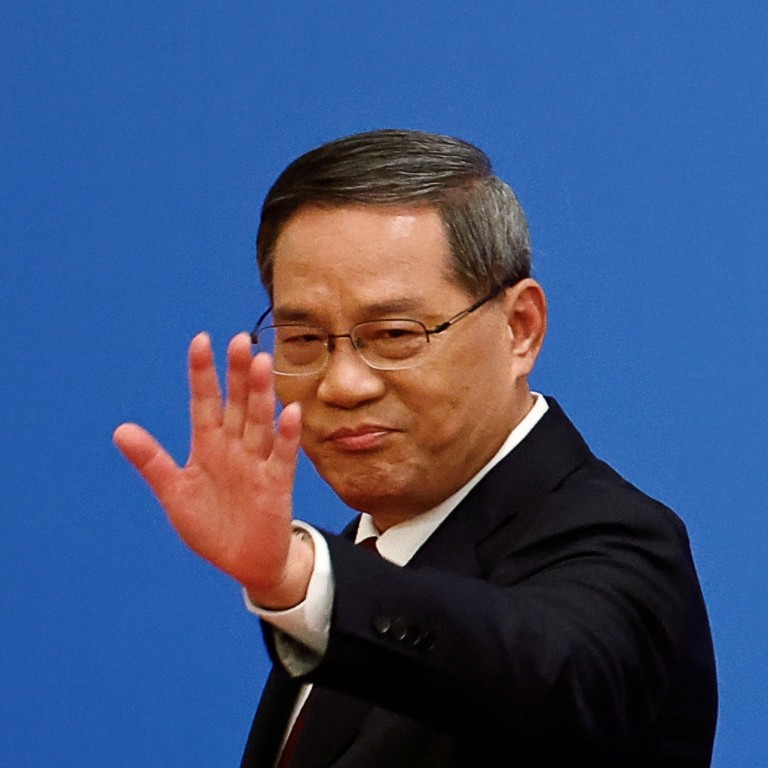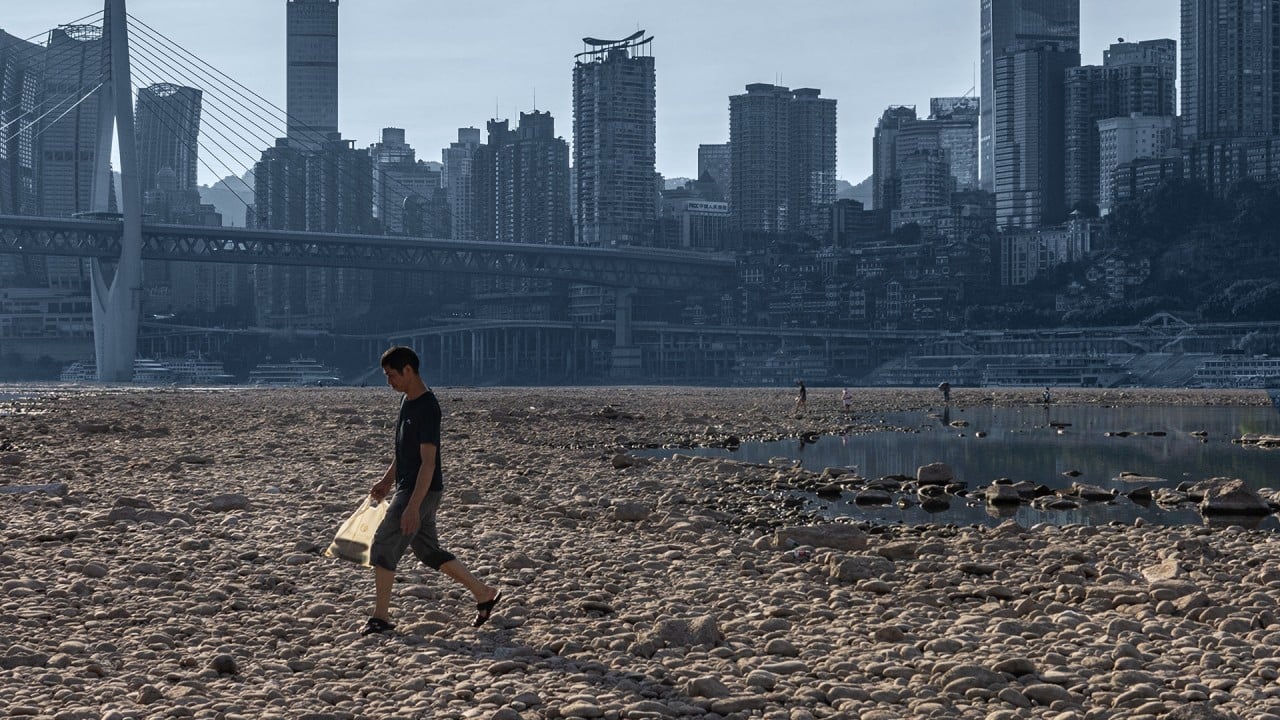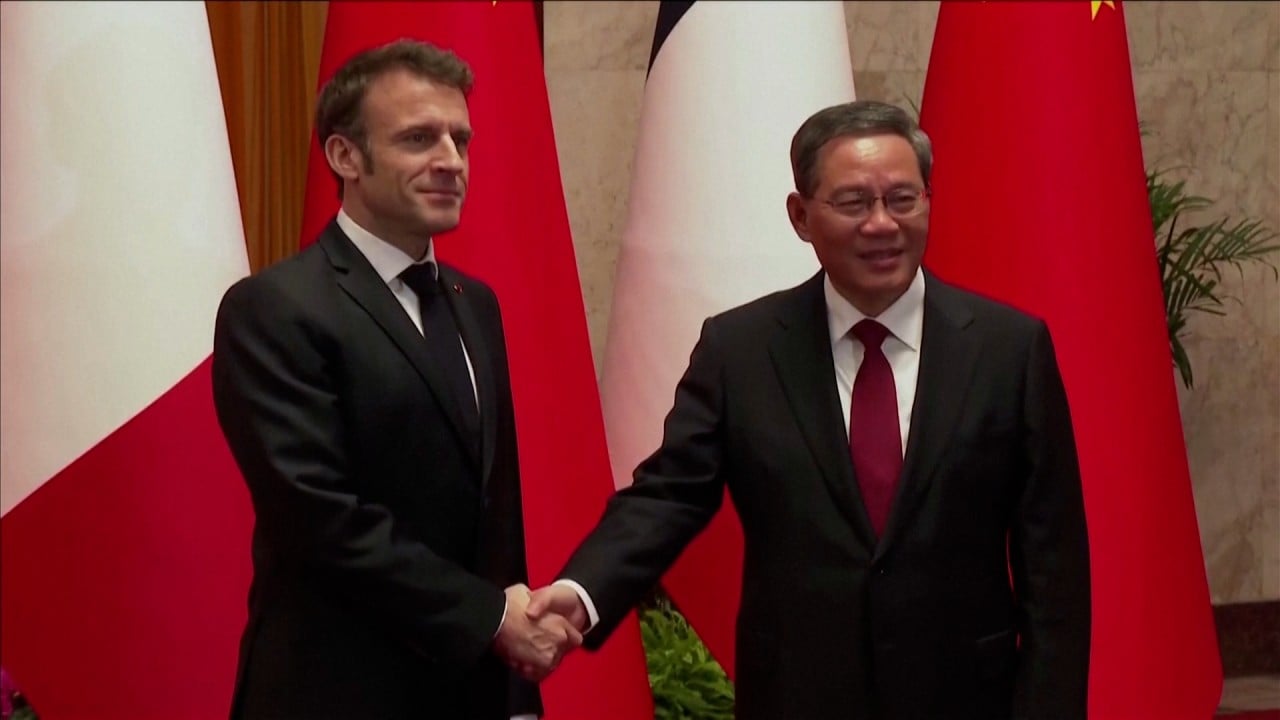
Can Li Qiang cement Europe’s ‘de-risk not decouple’ strategy on China?
- The Chinese premier’s visit to Germany and France will be closely watched as he seeks to boost relations amid growing US pressure
- Analysts say a successful trip will show there is an alternative to the confrontational approach of recent years
Li’s visit to Berlin and Paris, which begins on Sunday, will be closely watched as he seeks to boost relations with two major European powers amid growing pressure from the United States.
After Germany’s early pivot towards diversifying supply chains and cutting reliance on China, Chancellor Olaf Scholz openly clarified his stance against decoupling in October, saying it was “the wrong answer”.
Scholz made his statement months before the EU adopted a similar economic strategy of de-risking while progressing partnerships with Beijing in areas of common interest, such as climate change.
Austin Strange, who teaches international relations at the University of Hong Kong, said the de-risking strategy would theoretically allow countries to more effectively identify and manage risks arising from international circumstances.
He said the strategy was intended to ensure stable supply chains as well as minimise opportunities for potentially adversarial economic coercion.
Chinese premier to make first overseas trip to France and Germany
“Germany appears to want to retain China as a vital economic partner but pursue selective cooperation that minimises economic, political and security vulnerabilities.”
To this end, Berlin was “actively tailoring engagement in hi-tech and infrastructure-heavy sectors, especially domestically and in Europe”, Strange said.
Scholz’ visit to China in November – the first by a G7 leader since the pandemic – was met with scepticism by some, who felt his openness to Beijing could undermine a united Western front.
Half a year later, Strange said Li’s trip would be “an opportunity for outside observers to gauge their own options”.
And, if it yielded results, the visit would show that viable cooperative pathways exist beyond decoupling, and that the more confrontational approach of recent years was not the only way, he said.
EU’s ‘de-risking’ plan for China meets resistance from some members
In an indication that Germany remains cautious about its engagement with China, Berlin labelled Beijing a “systemic rival” in its first national security strategy released on Wednesday.
Zoon Ahmed Khan, a foreign-policy analyst and research fellow at Tsinghua University’s Belt and Road Strategy Institute, said there were “diverging views” in Berlin.
“For example, Foreign Minister Annalena Baerbock holds a more suspicious view of China when compared to Chancellor Scholz, who takes a pro-pragmatism position,” Khan said.
China’s influence on Russia is key to EU relations, German minister says
Partnerships in some areas were more likely to be agreed upon than others by most of Berlin’s decision makers, she said.
“Li’s visit will serve as a platform for the two countries to advance three main agendas: trade and economic cooperation by promoting trade liberalisation, cooperation on global governance especially climate change, and global peace.”
Khan said both countries could benefit from collaborating in these areas, noting that China’s high carbon emissions – 32 per cent of the global total in 2022, followed by the US at 14 per cent and India at 8 per cent – had raised concerns in the EU.
In terms of per capita emissions, China’s load was around half that of the US, making it the 28th largest polluter, according to the most recent data from Climate Watch.
“But [China’s] commitment to carbon neutrality by 2060, its investment in green technology and its cooperation with the rest of the world, including the global south, have simultaneously made Beijing emerge as a vital climate partner for the bloc.”
Zuo Xiying, international relations professor at Renmin University of China, said Beijing should continue its strategy of encouraging European countries to adopt relatively friendly policies, as a major approach to counteract US containment.
“[China] should deepen cooperation with Europe as much as possible to promote Europe to maintain its strategic autonomy,” he told a virtual forum last Friday.
After Berlin, Li will head to Paris to attend the summit for a new global financial pact, announced by French President Emmanuel Macron at the G20 in November.
Macron attracted controversy in April, when he called for Europe to build its strategic autonomy and avoid becoming Washington’s “vassal”.
But a new report by the European Council on Foreign Relations shows nearly three-quarters of Europeans agree with Macron’s view that the continent should cut its military dependence on the US.
A total of 43 per cent see China as a “necessary partner”, compared to 35 per cent who regard Beijing as a “rival” or “adversary”, according to the report.
In Khan’s view, public concerns in Europe about inflation and energy shortages trump fears of the “China threat”.
Most Europeans would want to stay neutral in a US-China war over Taiwan: study
“Macron’s position is intrinsically compatible with the EU’s de-risking strategy [and] aligns with the need to boost its economy,” she said.
Khan added that disengaging from Beijing would be more likely to result in Europe’s isolation from the world, rather than China itself being shunned.
“Macron’s own visit to Beijing shed light on the Global South’s emergence and Beijing’s role as a leader in global governance, which is growing more important in North-South and South-South cooperations,” she said.
World expects China to take bigger role in regional issues: foreign minister
The war in Ukraine – soon to enter its 16th month – will not be a priority during Li’s visit to Berlin, although the two sides may broach the subject to assess each other’s stances, according to Moscow-based international relations analyst Andrew Korybko.
He said there was limited common ground between the two countries on the issue and Beijing would “at most” reiterate its commitment to promoting peace talks.
“The Ukrainian conflict affects the world in different ways, but it’s not an impediment to the improvement of Sino-German relations, which are focused on trade ties.”
Ukraine war: China, France agree to keep pushing for political settlement
Korybko said any attempt by Berlin to problematise Beijing’s position could be interpreted by China as the European state acting under Washington’s influence.
A week after Li’s European trip, EU leaders will meet in Brussels and Korybko predicts that both internal and external discord will be on display.
Central and eastern European (CEE) countries like Poland and the Baltic states were likely to be “suspicious” of the uptick in France and Germany’s diplomacy with China, he said.
“The West has a narrative interest in presenting a united front on this issue, though there is also no denying that rifts are emerging between the US and CEE states on one hand, and on the other between the CEE and Western European states led by France and Germany.”
The latter were “flirting with a potential compromise” on the war, Korybko said.
Additional reporting by Orange Wang



